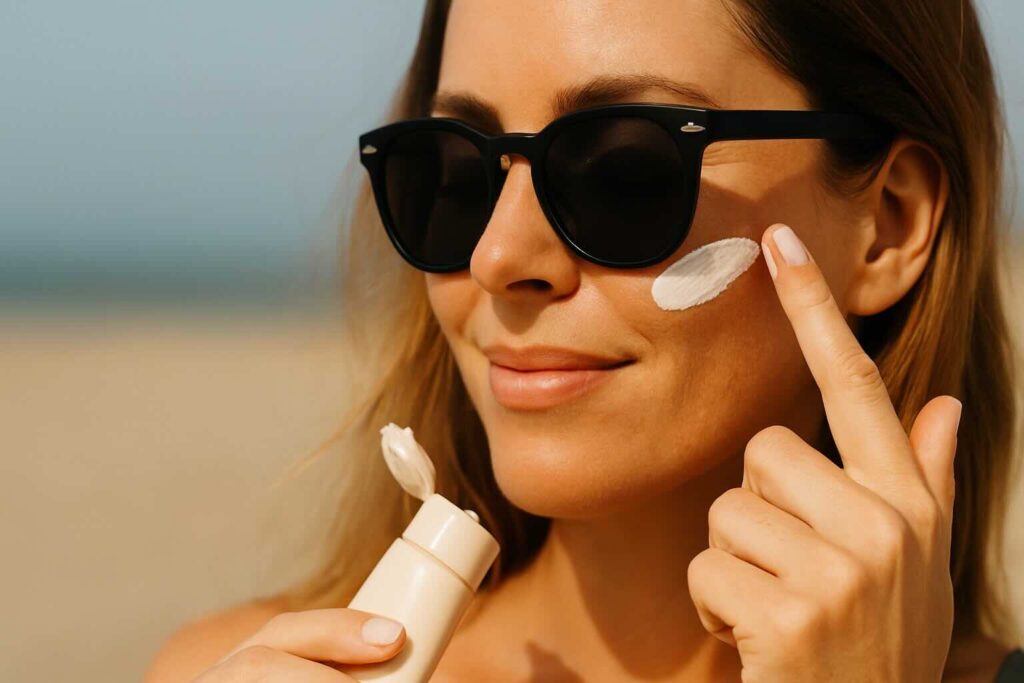Choosing the right sunscreen for your face and around the eyes matters! Discover the advantages and disadvantages of physical versus chemical sunscreens.
As optometrists, we often talk about sunglasses and UV protection—but sunscreen is just as important when it comes to protecting the delicate skin around your eyes. With summer in full swing in Dana Point, here’s what you need to know about choosing the right sunscreen.
How to Choose
Choosing between physical and chemical sunscreen depends on your skin type and preferences. Physical sunscreens, such as zinc oxide and titanium dioxide, create a barrier that reflects UV rays and are often gentler on sensitive skin. Chemical sunscreens absorb UV rays and convert them into heat, which can be more cosmetically elegant but may cause irritation for some.
Physical Sunscreen (Mineral Sunscreen):
Pros:
- Immediate protection: Start working as soon as they are applied.
- Environmentally friendly: Some options are considered reef-safe, avoiding harmful chemicals like oxybenzone and octinoxate.
- Gentle on skin: Typically less irritating, making them suitable for sensitive skin, children, babies, and those prone to allergies.
Cons:
- Can leave a white cast: Especially on darker skin tones, though newer formulas are addressing this issue.
- Thicker consistency: May require more effort to blend into the skin.
- Easily rubbed off: May need more frequent reapplication.
Chemical Sunscreen:
Pros:
- Lightweight and easy to apply: Often more cosmetically elegant and less visible on the skin.
- Broad-spectrum protection: Offers good protection against both UVA and UVB rays.
Cons:
- Potential for irritation: May cause stinging or burning for sensitive skin.
- Require 20 minutes to absorb: Needs to be applied before sun exposure.
- May not be suitable for all skin types: Can be irritating for oily or acne-prone skin.
- Environmental concerns: Some ingredients can be harmful to marine life.
Which one should you choose?
- For sensitive skin: Opt for physical sunscreen.
- For oily or acne-prone skin: Consider a lightweight chemical sunscreen.
- For daily use: Choose a sunscreen you find comfortable and will use consistently.
- For environmental concerns: Look for reef-safe physical sunscreens.
Ultimately, the best sunscreen is the one you’ll wear consistently. For the area around your eyes and face, physical (mineral) sunscreen offers gentle, adequate protection—especially if you’re prone to sensitivity. If you’re unsure, consult with a dermatologist, skincare professional or the doctors of Monarch Bay Optometry for personalized recommendations.


